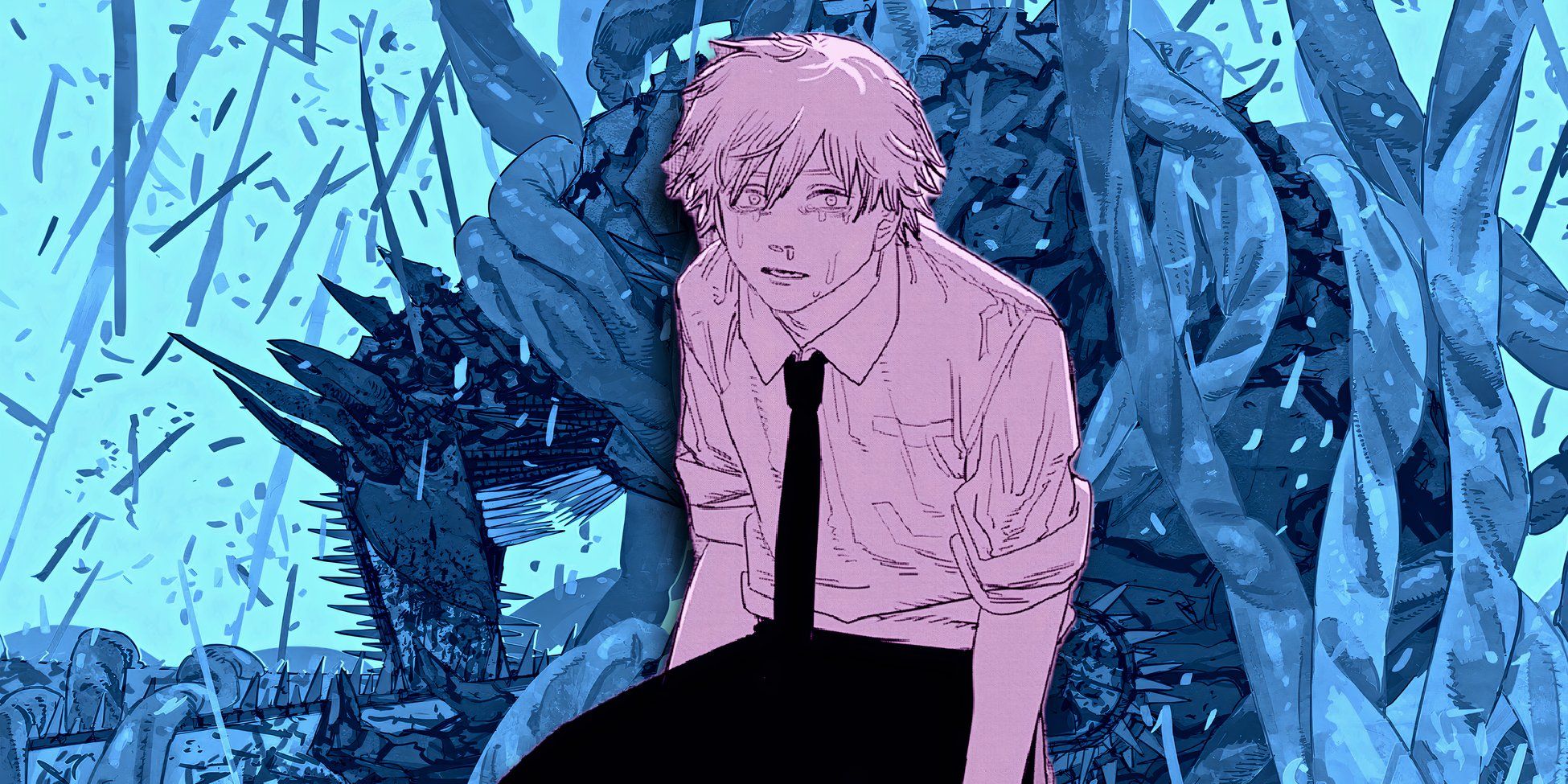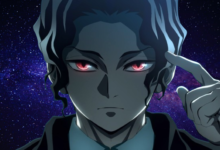Denji: ChainSaw Man and its Emotional Pertinence

Chainsaw Man focuses on Denji, the main protagonist, and his struggles as a man whose life takes a turn for the better in the most brutal ways, along with brutal fight scenes and life-or-death battles. Despite the focus on demons, violence, and anarchy, the show’s narrative is, to a great extent, the bildungsroman of the protagonist, Denji. In this article, let’s unravel the essence of Denji, the protagonist of the Chainsaw Man, and how his character sets the series’s narrative apart.
Denji’s Origins: From Poverty to Possibility
Coming to Denji, his past is one of the most vital narrative elements of the character. Born in an impoverished family, Denji has had to fight for every little thing in his life. Denji’s mother died of illness, and his father died, leaving him with a mountain of debts to the Yakuza. In return for this, he was drawn into a cycle of demon hunting with just his pet devil, Pochita, for company.
This makes him an authentic human character, someone so desperate he can’t afford shelter and food. Unlike most Shonen heroes who portray themselves as wanting a dramatic lifestyle, Denji’s motives are more relatable. These are not motives of heroism or a burning desire to change the world, but simply an urge to have a proper living and good food to eat, and if possible, a girlfriend to date sometime in the future. These goals are primary and could be seen as other individuals in similar struggles have, making his journey quite touching.
The Power of Pochita: More Than Just a Chainsaw
Pochita is not just a simple devil dog of Denji but is very cute and adorable. For the first time in Chainsaw Man, Denji and Pochita’s connection breaks the mould of a regular human-devil arrangement and is one of the show’s main emotional pillars. Denji dies in this tragedy when the Yakuza betrays him. Pochita decides to die and save Denji by entering his body and granting himself the Power to transform into the heroic Chainsaw Man.
This scene is what I believe to be the turning point that sets Denji into a new phase of his life in the Black Clover series. His new powers enable him to stand up for his fate to change from the way it was. However, achieving this kind of change has its challenges. Now, Denji is a half-devil, half-human, and must face more challenging enemies than he could ever imagine.
Pochita also significantly affected Denji, not only because they were fused. Pochita’s sacrifice and Denji’s affection towards his little devil dog visually represent his character’s personality. In spite of the unclear future, no home, devils, and violence surrounding him, Denji is innocent and able to feel love in his heart even though he acts like an uneducated teenager and has little self-control.

Denji’s Desires: A Simple Boy with Big Dreams
It is helpful first to note that the most defining feature of Denji’s character is his essential nature. Unlike most protagonists with big dreams of being the legend or saving the world, which is common in most Shonen, Denji has relatively tiny dreams. His motivations are understandable since his desires are as simple as a fancy meal, a warm bed, and a warm cuddle. Most people may consider these simple, but for Denji, they are still considered dreams.
But that is why the show’s simplicity is fascinating, given that most of the series that also belong to this genre are over the top in their goals. Denji’s character is simple at the beginning, but the story changes significantly when the series is done. The character still dwells on the more fundamental level of lustful desire; however, the more he satisfies his instincts, the more his perspective shifts. Denji’s story is quite realistic in portraying the acceptability of simple dreams that everyone entertains and the progress of how a person develops from childhood to adulthood.
It is not only cute when an anime protagonist is hardworking towards achieving their goals but also when they are unashamedly ambitious, like Denji. You see, Denji is not shy about his desires, like when he wants to touch a girl’s chest or crave a good meal. This is a refreshing change from what may have become the norm for characters to deliver weighty emotional and moral issues. Counter: One thing that makes Denji quite realistic, bearing in mind that the story’s context is all fictional, is that he does not waste time expressing his desires.
Denji’s Relationships: ‘The Search’ for Kinship in an Economy of Violence
Despite his blokes and rather boorish demeanour, Denji is, at the core, a man who craves contact with other people. The story of Chainsaw also revolves around the character and Denji’s basic desire, which in this case is to belong. Whether it’s with Pochita, his co-workers at Public Safety, or even with the cunning Makima, Denji is always trying to find people he can call family.
The degree of intimacy he shares with Power, who is a friend and turns into a friend and business partner, is one of the most complicated in the series. An extension of the first four episodes shows how the initially turbulent professional relationship eventually develops into mutual respect and friendship. Power is an eccentric character that contrasts nicely with Denji’s erratic nature. Therefore, they quickly become friends, which is one of the few uplifting things in the series.
The name Makima is associated with more negative characteristics that symbolize an unhealthy type of love. Thus, Denji’s passion for her is caused not only by a sexual desire and a desire to be approved but also becomes deadly. It is evidenced by Makima, who shows that he is very vulnerable no matter how strong he is. This aspect brings complexity to Denji’s character, getting to his fear, anxiety, and most profound desire to be accepted and loved.
Denji’s Evolution: From a Tool to a Hero
Over the series, Denji grows in character massively and becomes more than just a money-hungry idiot. Initially, he only cares about his self-needs and mainly does what he wants to do. But, he learns his abilities that make him a strong person, and with great Power comes immense responsibility. Chainsaw Man employs the concept of character development to show the transformation of Denji from a greedy boy to a man who is concerned for his fellow humans.
Still, readers see that with an increasing amount of responsibility, Denji remains the protagonist at his core. He is stubborn, vulgar, rude, and sometimes self-centred, but none of these actually detract from his overall character—in fact, they add to it, making him so realistic and believably human. Whether intentional or not, Chainsaw Man does not limit Denji as a hero, and the flaws are evident, but one can still be heroic.
It’s about finding good in an imperfect world, finding a purpose in life, or, in Denji’s case, getting back something he lost in the past. It is about life and gaining experiences that, in one way or another, have to do with relationships. His story here is relatable for his fans because it’s—once again—real-life, complicated, and provoking.
Conclusion: Why Denji, the Reluctant Hero That We Required
That is where Denji deviates and goes entirely against the manga trope that Shonen usually tries to paint, making him attractive. His essence of being a human being, his lust, his needs, and his interfaces with the people around him turn him into one of the most memorable characters in post-modern manga and anime. Chainsaw Man goes beyond depicting just devils and fights; it is a character transformation narrative accompanied by themes such as loneliness and the desire for acceptance in a cruel world, all attached to Denji’s character.
While the show continues to engage the viewers, it is highly certain that the central character, Denji, will stay in Chainsaw Man. His arc, from a poor boy with nothing to live for to a strong and compassionate male character, is one of the best in the show. Denji may not be the sharpest tool in the shed, but that makes the character so human and believable—making him more of a hero than many of his colleagues.

